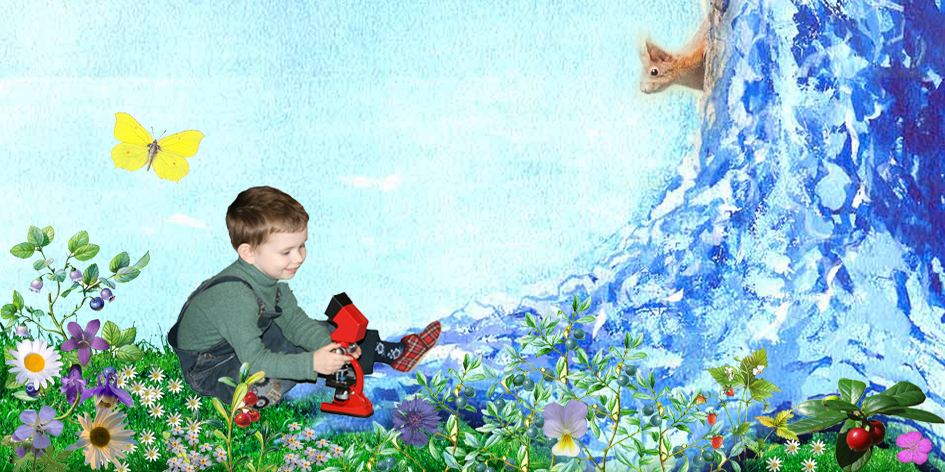My husband and I are both no strangers to pedagogy. For many years I taught children at the Ecological and Biological Center of the Anichkov Palace, my husband taught students at the Polytechnic. And since circumstances made it possible to raise a common child, it was not without a discussion of how to do this. We completely agreed that the child should be taught to think scientifically. However, further disagreements began. The husband offered to wait until it grows on its own and starts asking interesting questions. For in the beginning it is boring with a small piece of meat and there are no common topics for conversation. And in general, how can you teach mathematics or biology to a slurred creature who, in response to explanations of Bayes' theorem / Krebs cycle, bubbles from drooling? But I think that luckily, everything is not as dull and useless as it seems. I'll try to explain why.

( , , ). , 40-60%. , ? . -, , , , , . , 40-60% . , , .
, , . - , - . , , ( ) ( , , ). . -, . .
, , — , ? ?
.
, . : 80% . — 90%. () - , - . , . . , ( ).
. ? «», «», «» , ? , . . , , , ( , ). , , , . , - ( , ), .
, , . . -. , . — . , . , , ( , ). , . ? , , . . .
. , , «Taking Science to School: Learning and Teaching Science in Grades K-8», , . , , 2007 , . , , .
, , . 4 . 12 , ( ), , , . , .
. , ( ) — , . , — .
, , . : , ( , ). , , .
, , , , . , , .
,
, , , , / (, , ). . , , , .
, , , . . , , . , , . , . . , , , , , .
. . - , — , . , .
, , . . , .
, , , , , . , — , , — .
. , , . , . .
. , , , . , . .
, , , , . .
, , (, ), — , (, ). , («», «», «»), , («», «», «») ( , , ). , . - , . 4 , (, , ) (, ) . , , (, , , ). : , . .
— . — , , , , .
-
, , . - , , .
, , , . «-», .
. , , , . , , .
. . , .
. , , . , , . «Taking Science to School: Learning and Teaching Science in Grades K-8» . , - , : « , , , , , » - , . , , . — «How to Tell Stories to Children: And Everyone Else Too». . , , , - . , — , , , , — .
« » ( , )
. « . » . , , 20 . . : 1 - , , 2 - ( ), 3 — , , 4 - ( , — ). . : 1 3. — 4, 2 . , 3, ( !) . — , . , — . , , , .
, :
- , , , ?
? 1: «-, ». 2: « — . , , ». 3: «. — , . ». 4: «, , . , . - ? ? , . , ?»
— ? ? , ? ? . « » . , , - , . — . 3 .
— , . , , , , . ( , - , , — ). — , .
By the age of 7, most children will develop their own opinion about science as something worth / not worth their attention. And then it will not be easy to change this attitude . So we take a child, a shovel, a scoop, balls and sticks, put it all in a muddy puddle on the bank of the pond and begin to catch every little thing from there with a net, until the child asks what is happening in general. Well, we are not lost, now we know how to answer :)
PS For inspiration, you can also read this article with the memoirs of scientists about their childhood. There are a lot of lively and interesting stories.